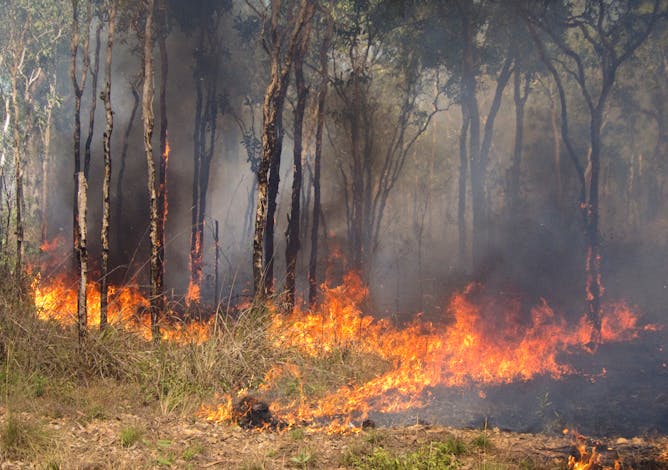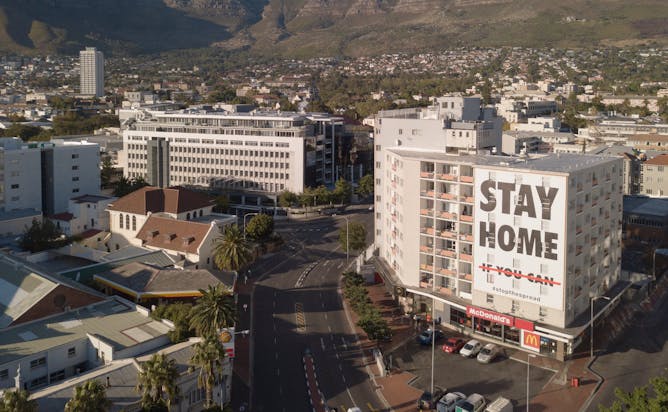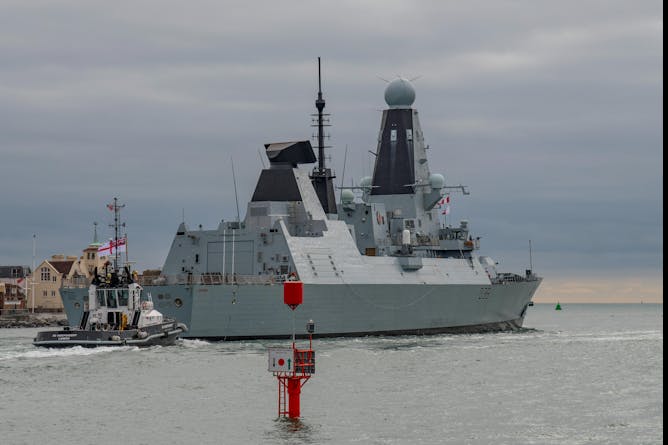|
|
|
|
When a massive earthquake and subsequent tsunami struck the coast of Japan on March 11 2011, Liz Maly was in the air. She was flying back to Japan from China, where she’d been doing research on the recovery from the Sichuan earthquake. Arriving back in Osaka, she said there was an uncanny quietness in the airport and sparse reports about what was happening. Little by little, over the next few days, information emerged about the scale of destruction, and about the meltdown going on at the Fukushima Daiichi**nuclear plant.
Maly talked to us for the latest episode of The Conversation Weekly podcast on the different ways countries can learn lessons from disaster. While Japan’s thinking on disaster preparedness shifted after the 3/11 disaster, she argues the country still lacks flexibility in its approach – and this has hampered its response to coronavirus.
The podcast is part of a series we’re running on recovering from the pandemic in a way that makes societies more resilient and able to deal with future challenges. One way is to make sure we don’t ignore the wisdom of crowds but use our collective intelligence to help prevent the next pandemic.
Meanwhile, new research suggests which cities around the world experienced the biggest drops in crime during lockdown. And after an apparently dangerous incident involving UK and Russian military forces in the Black Sea, Andrew Serdy considers the maritime legal arguments.
|
Gemma Ware
Editor and Co-Host, The Conversation Weekly Podcast
|

|
|

Umomos/Shutterstock
Gemma Ware, The Conversation; Daniel Merino, The Conversation
How to prevent future disasters by learning from the past. Listen to episode 21 of The Conversation Weekly podcast.
|

fivepointsix/Shutterstock
Amy Nivette, Utrecht University; Manuel Eisner, University of Cambridge
Stronger stay-at-home measures led to bigger reductions in crime – though these changes soon began to reverse.
|

HMS Defender: at the centre of an international maritime dispute.
Neil Watkin/Alamy Stock Photo
Andrew Serdy, University of Southampton
Nothing suggests that HMS Defender's passage was anything but continuous and expeditious. But the UK should avoid relying on Ukrainian "permission" as a justification.
|
Environment + Energy
|
-
Lynda Dunlop, University of York; Lucy Atkinson, University of York; Maria Turkenburg-van Diepen, University of York
Teenagers directly affected by fracking have voiced disappointment at the political process. They're looking for other ways to make their voices heard
-
Christopher Hedemann, University of Hamburg; Eduardo Gresse, University of Hamburg; Jan Petzold, University of Hamburg
Our team of 40 researchers combined natural and social sciences to assess the plausible limits of future climate change.
-
Ahmad Beltagui, Aston University; Andreas Schroeder, Aston University; Omid Omidvar, Aston University
What if you could pay to heat your home the same way you pay to stream music? You can with heat-as-a-service.
|
|
Business + Economy
|
-
Dominik Schreyer, WHU – Otto Beisheim School of Management; Matthias Sutter, Max Planck Institute for Research on Collective Goods; Sascha L. Schmidt, WHU – Otto Beisheim School of Management
New research shows that winners get to choose.
-
Michael Weinold, University of Cambridge
The global semiconductor shortage is causing problems for Europe because it has mostly abandoned manufacturing them.
|
|
Health + Medicine
|
-
Rob Reddick, The Conversation
World leaders have called for an end to the pandemic – but the numbers don't add up.
-
Nicola Carslaw, University of York
Carbon dioxide levels can be a proxy for the amount of airborne coronavirus in a room, but plenty of things can mess with the measurements.
|
|
Politics + Society
|
-
Sarah Mills, Loughborough University
What started out as a community project with local schoolchildren has garnered an official endorsement and countless memes. It has also sparked a national conversation
-
Elizabeth Maly, Tohoku University
Japan has a long experience of hazards and disasters. Yet it does not seem like all lessons have been applied when it comes to COVID.
-
Sojin Lim, University of Central Lancashire
Kim Jong-un's border closures appear to have blocked the spread of COVID-19 in North Korea, but they have also caused a food crisis threatening the survival of his people.
|
|
Science + Technology
|
-
Aleks Berditchevskaia, Nesta; Kathy Peach, Nesta
The WHO is creating a Global Pandemic Radar – an example of collective intelligence that must learn lessons from this pandemic.
-
Franck Montmessin, Université de Versailles Saint-Quentin-en-Yvelines (UVSQ) – Université Paris-Saclay
New results show why and how water is disappearing from Mars atmosphere.
|
|
| |
Featured events
|

|
Online - Zoom Webinar, Huddersfield, Kirklees, HD1 3DH, United Kingdom of Great Britain and Northern Ireland — University of Huddersfield
|

|
Online, Whiteknights House, PO Box 217, Reading , Reading, RG6 6AH, United Kingdom of Great Britain and Northern Ireland — University of Reading
|

|
This is a FREE online event (University of Aberdeen), Aberdeen, Aberdeenshire, AB24 3FX, United Kingdom of Great Britain and Northern Ireland — University of Aberdeen
|

|
University House, Winston Churchill Avenue, Portsmouth, Hampshire, PO1 2UP, United Kingdom of Great Britain and Northern Ireland — University of Portsmouth
|
|
|
|
| |
| |
| |
| |
| |
|
|
|
|
|
|
|